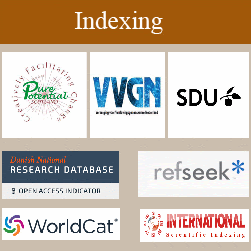Perceived Obstacles to Executive Leadership Roles for Women of Ethnic Background in NHS
Author(s):
Ghaida Al-Jaddir and Anum Khan
Introduction: Equality and Diversity are an essential component of every profession and organization in this day and age. Female leaders from ethnic backgrounds are under-represented in the healthcare, owing to only less than 5% of executive leadership roles in the NHS. There are several obstacles or barriers for females to pursue leadership roles such as lack of opportunities, education, training, gender disparities, and work – life balance and family commitments. However, some barriers are perceived and may be associated with personality, lack of confidence, self-esteem or adequate guidance. The availability of a mentor or role model as inspiration is helpful in finding a career path for achieving long-term and short-term goals.
Aims and Objectives: This research aimed to explore, describe and understand perceived obstacles and challenges preventing female leaders of ethnic background reaching executive roles in the NHS. The objectives were to determine the perceived personal barriers for women in executive leadership roles, particularly being at a disadvantage from the ethnicity front and to explore perceived perspectives, personal life experiences, motivations, perspectives, and reflections of women in leadership roles in health care.
Methodology: This research project adopted an interpretive, inductive approach with a qualitative design. 9 female leaders working in the healthcare sector in UK were invited. 9 participants were interviewed via digital portals.
Findings: The results generated from coding software were presented as descriptive analysis, pie charts and tables. The themes correlated to frameworks identified in literature review as Growth mindset, Goleman’s components of emotional intelligence and Equality and Diversity framework.
Conclusion: Female leaders advocated developing skills and higher educations to progress into leadership roles. Mentoring and role models help in ascending the career ladders and may prove to be an important support system. Networking, enhancing communication skills and developing social skills is paramount in leadership roles. Being self-aware of strengths, weaknesses, shortcomings and emotions and managing difficult tasks is a skill that can be developed to be an influential leader. Female leaders in this research had good family support system but felt they needed to commit to family responsibilities including child care and taking care of elderly parents. This did not hinder the progress but nonetheless, is a contributing factor. No female leader felt victim to gender disparity or sexual harassment at work place. The perceived barriers for most participants were lack of confidence, self-worth, adequate training and education. To conclude, all female leaders advocated self-development and actively seeking continual professional development opportunity as perceived internal barriers limit growth as opposed to external barriers such as lack of opportunities or gender disparities.



